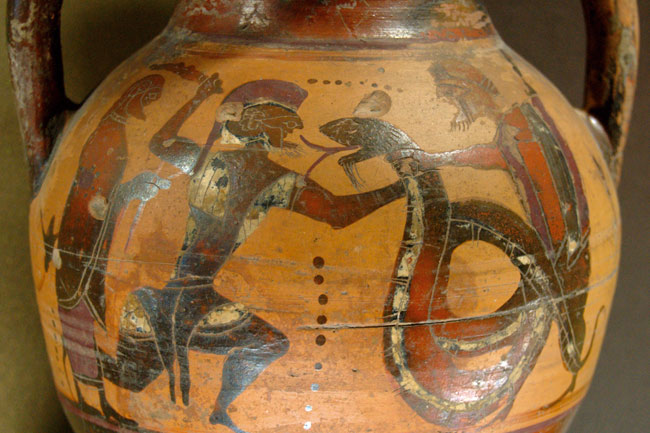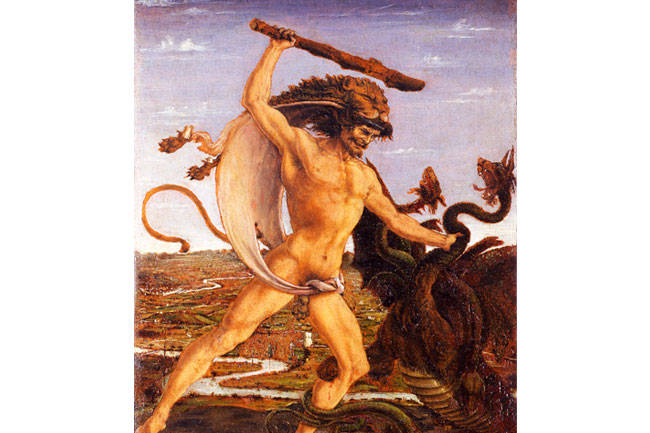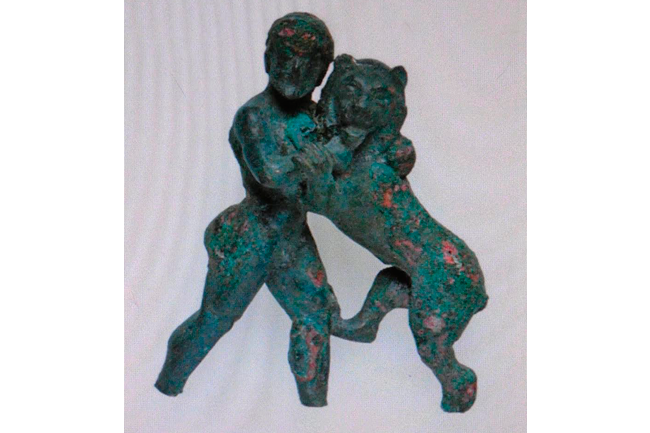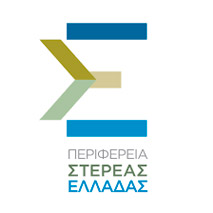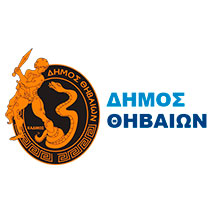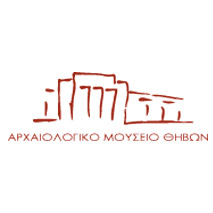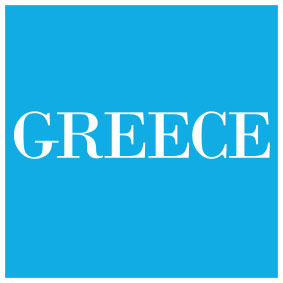The most beloved hero of the Greeks, Hercules, was born and raised in Thiva. The Thebans, many centuries after the mythical “events”, preserved the ruins of a house near Electra’s gates, where they believed the hero had been born.
The fate of Hercules prepared for him to be glorified through the 12 labours but also through a series of smaller feats. In Showcases 5 -11 and Pedestal 2, objects illustrating his labours are exhibited, such as the ink-shaped cylinders from a Boeotian workshop of the 5th century BC, depicting Hercules’ fight with the lion of Nemea and the bull.
The god Dionysus, son of Zeus and the daughter of King Cadmus, Semele, came from Thiva, but unlike Hercules, he was not raised there. A number of real or imaginary creatures made up the Dionysian troupe, that is, the society of Dionysus. Satyrs were mythical creatures, spirits of the mountains and forests, misshapen, hairy, with a tail and in some cases horse’s feet, lively and mischievous. Dionysus’ companions include the Maenads, mortal women, as well as his wife, Ariadne.
Source: https://www.mthv.gr/
Forms of the myth
Mythical settler of Thiva was Cadmus, son of the king of Phoenicia, Agenor, who came to Greece in search of his sister, Europe. After some wandering, he arrived in Thiva, where he founded Cadmeia, according to the Delphic prophecy.
Cadmus married Harmonia, daughter of Ares and Aphrodite, and the gods were present at their wedding. Their children were Semele, who gave birth to Dionysus, Agave, who gave birth to Pentheus, and Polydorus, the progenitor of the royal family of the Labdacides. The origins of Thiva capture the imagination and connect this beautiful place with the emergence of European civilization.
Source: https://www.mthv.gr/
Tips
The most beloved hero of the Greeks, Hercules, was born and raised in Thiva. The Thebans, many centuries after the mythical “events”, preserved the ruins of a house near Electra’s gates, where they believed the hero had been born.
